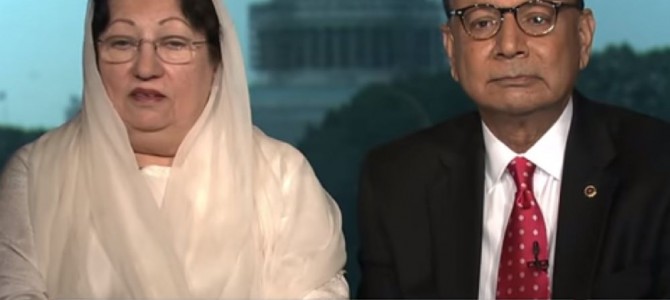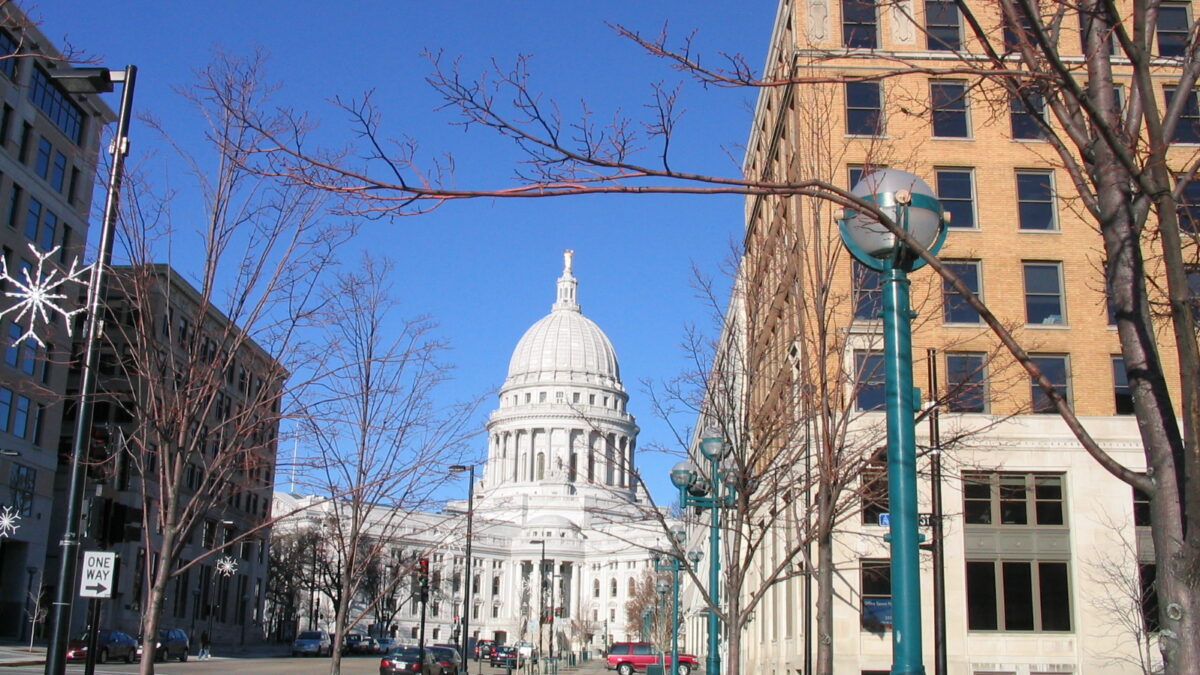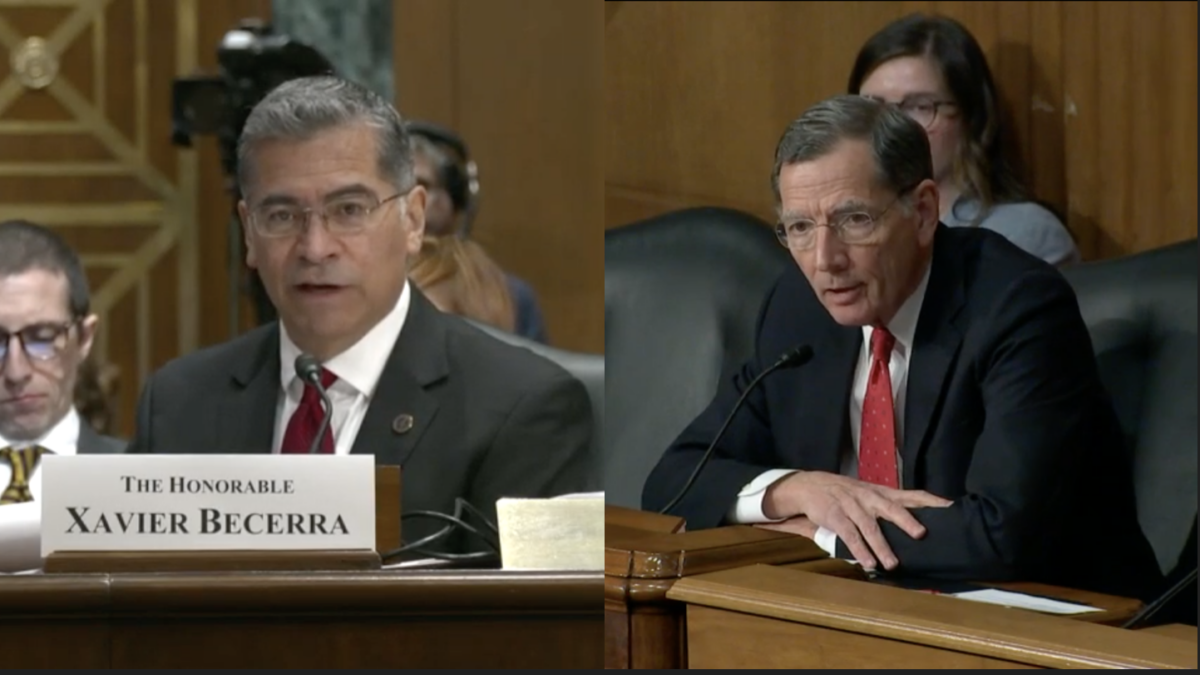
At the Democratic National Convention last week, Khizr Khan condemned Donald Trump for his comments on Muslim immigration. The Muslim father of U.S. Army Captain Humayun Khan, who was killed in Iraq in 2004, Khan gave a stirring speech in which he brandished a copy of the Constitution and called out the GOP nominee for his ignorance of our founding documents. Since then, Trump has let loose an embarrassing barrage of insults aimed at Khan and his wife Ghazala.
While members of the Republican Party, including House Speaker Paul Ryan and Sen. John McCain, scramble to condemn Trump’s unstatesmanlike reaction, we should pause and contemplate immigration, assimilation, and the role of the military. We should also consider the fact that the Khan family represents what both Democrats and Republicans have claimed they’re eager to support—moderate Muslims.
America is known for its capacity to assimilate peoples from myriad cultural, racial, ethnic, and religious backgrounds. It’s part of what makes our country so special—that anyone can come here, make it his home, and become American. That’s because America is founded on a political philosophy, not an ethnicity or nationality, making it easier for immigrants to integrate into our society and become Americans.
The Military Is a Key Assimilation Tool
The Panel on the Integration of Immigrants into American Society defines integration as “the process by which members of immigrant groups and host societies come to resemble one another.” According to the National Academies of Sciences study from 2015, immigrants and their descendants are, in fact, integrating well into U.S. society.
The process of integration is generally marked by participation in social institutions like schools and the labor market. This includes participation in the armed forces. The military is one of the most patriotic and fundamental symbols of a country and culture. For someone from an immigrant family to enlist is a sign he wants to support the pillars of his new society. It shows the immigrant has accepted his new country and what it stands for.
Military institutions have a long history of assimilating different groups, including immigrants. In France, World War I was a significant turning point in the linguistic unification of the country. Men who were drafted from the provinces and spoke various French dialects quickly had to learn standard French. This was a factor in the decline of dialects like Occitan, and in culturally unifying the country.
The fact that the Khan family had a son who joined the Army and rose through its ranks makes them a paragon of immigration to America. It’s what our country wants from immigrants who come here to make their home. We don’t generally ask people to abandon their traditions and beliefs. But we do ask them to become Americans. The Khans are a terrific example of how the United States excels at assimilating people from varied cultures and religions.
More Muslim Americans Fight For Us than Against Us
This stands in juxtaposition to British assimilation. Britain, which follows a strict philosophy of multiculturalism, doesn’t really ask its immigrant population to become British. They believe all people can absolutely maintain their culture and heritage with minimal adjustment to their new environs. This is perhaps why they have allowed 85 sharia courts to be established in Muslim communities throughout the United Kingdom.
One of Britain’s problems with assimilation manifests itself in the rate of British Muslims joining the armed forces. More British Muslims have reportedly gone to fight in Iraq and Syria than serve in the military. Approximately 640 Muslims are members of the armed forces, while 1,500 have attempted to leave Britain to join ISIS in the past four years.
This is an alarming statistic that suggests Britain has a serious integration problem on its hands. Their Muslim community is more likely to be motivated to join a terrorist group than to join the military to fight terrorism. We should be proud—and relieved—that this isn’t the case in America, where only 250 Americans have tried to go fight with ISIS, while the military estimates there are nearly 5,900 Muslims now serving.
Military enlistment is also a sign that an immigrant is headed towards integration, especially because it indicates he is likely not getting into trouble with the law. This is important because prisons are an epicenter of Islamic radicalization in Europe as well as America. Counterterrorism experts warn the level of radicalization in British prisons could pose a national security threat. There are similar concerns in the United States, as well as France and Belgium. One of the attackers who killed a French priest last week, Adel Kermiche, was radicalized in prison. So were French terrorists Mohamed Merah, the Toulouse shooter, and Amedy Coulibaly, the attacker at the kosher deli in 2015.
Members of the military are much less likely to land themselves in prison, where, if they come from a Muslim family, they are likely targets for indoctrination by radical Muslim inmates or prison clerics.
This doesn’t mean a member of the military can’t radicalize. We saw this with Major Nadal Hassan, the Fort Hood shooter. France, too, has seen a number of its military personnel defect and fight for ISIS. But involvement in the military is still a positive sign of an immigrant’s integration to their new society.
Moderate Muslims Are Our Best Allies
Trump of all people should know as much. Last year he cited the statistics about British Muslims in the military. He ought to be pointing to the Khans as examples of the type of Muslims America wants to encourage to come to the United States. This would be useful in easing the minds of Republicans who find his comments about Muslims—and Muslin bans—worrisome, to say the least.
But after Hillary’s bump in the polls following the Democratic National Convention, Trump needs to drum up more populist support. This is best done, it seems, by stoking controversy and isolationist sentiments, not by celebrating a moderate Muslim family.
Trump tweeted Monday that “This story is not about Mr. Khan…but rather RADICAL ISLAMIC TERRORISM and the U.S. Get smart!” (original emphasis). He couldn’t be more wrong. We need to look to the moderate American Muslim community for an alternative to the radicalism plaguing Western societies and causing so much chaos in Europe. Families like the Khans have shown their willingness to sacrifice for America—the greatest possible sign of integration, and the mark of a true American.









